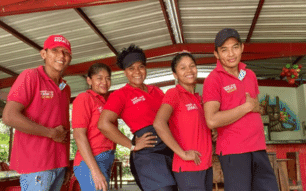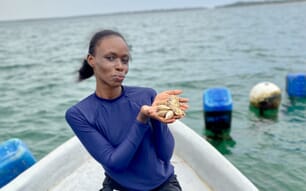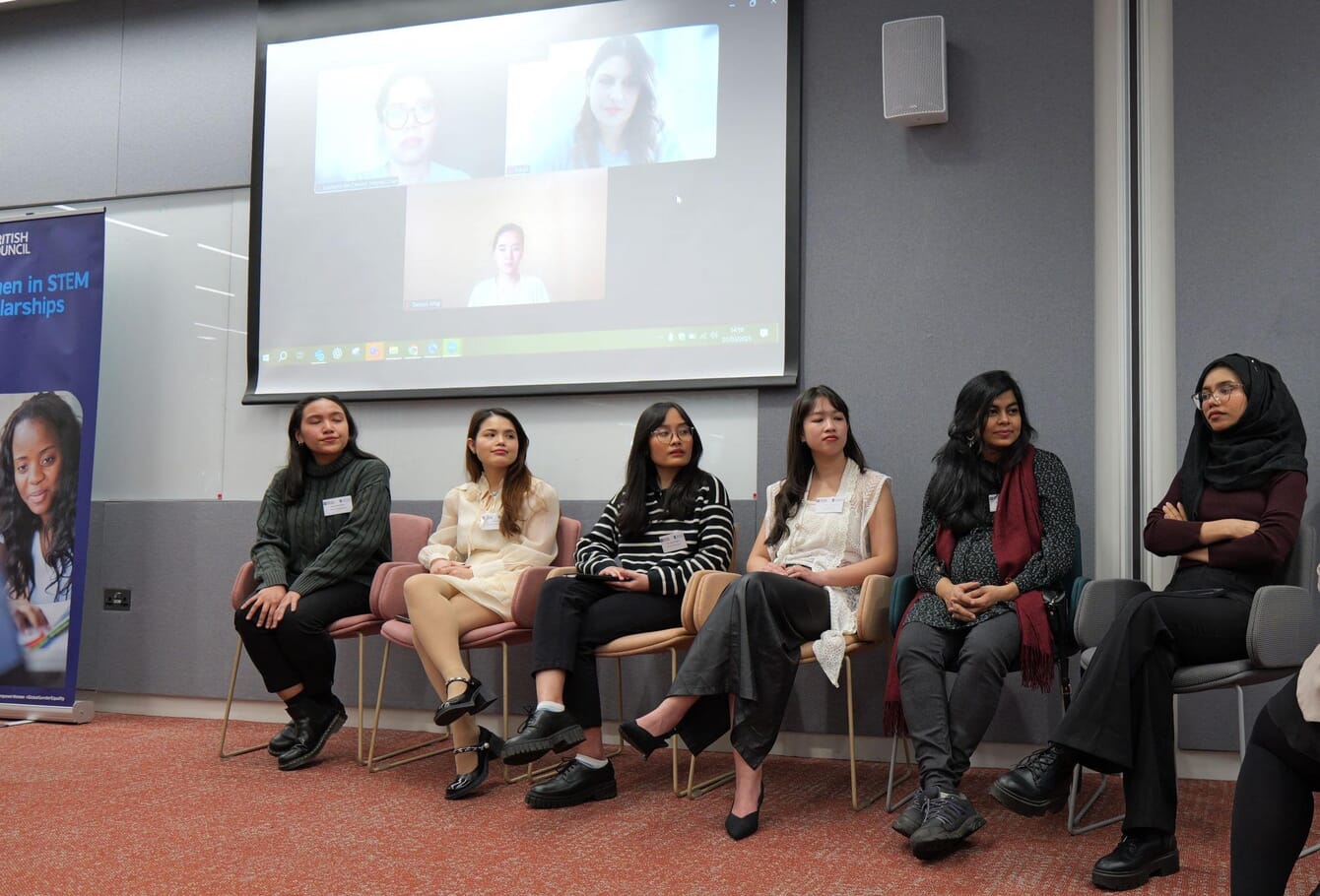
Dinulislam won a British Council Women in STEM Scholarship, which helped to support her while she studied aquaculture at the University of Stirling
The Women in Scottish Aquaculture (WiSA) programme is one initiative working to change that. As a mentee in its fourth cohort, I’ve experienced first-hand the value and impact of this programme, not only for my career but for my personal growth as well.
How my journey in aquaculture began
I’ve always loved being in the water, which is why I chose to study aquatic resource management for my bachelor’s degree at IPB University, one of Indonesia’s top institutions. Coming from a small island in Indonesia called Batam, I was fortunate to be accepted through a regional invitation route. I had initially considered a path in communications due to my love of writing, but I saw an opportunity in a field few of my peers were pursuing.
Aquatic sciences were often dismissed by young people as not glamorous, but I was captivated from the start. In Indonesia, water and fish are not just a source of food, they sustain entire communities. I realised that to improve and protect this vital sector, it needs people who care deeply, and I wanted to be part of that change.
Even while studying, I stayed close to my writing passion, contributing to science and agriculture media platforms as a young journalist from 2017 onwards. But I quickly realised that I was navigating two male-dominated spaces: academia and the aquaculture industry. While gender gaps in Indonesia are slowly improving, women in fields like aquaculture and fisheries still face significant barriers.
From Indonesia to Scotland
After graduating in 2020 during the height of the Covid-19 pandemic, aquaculture jobs in Indonesia were scarce. Many businesses had shut down, and I began contemplating my next steps. That’s when I discovered the British Council’s Women in STEM Scholarship, a programme that would open a door I’d long dreamed of: studying abroad.
One of the programmes offered was an MSc in sustainable aquaculture at the University of Stirling, and out of hundreds of applicants from around the world, I was lucky to be selected. Studying in the UK was eye-opening. I saw how women in aquaculture are supported here, not just with policies, but through mentorship and community-building initiatives like WiSA. It was empowering to witness women thrive in technical, policy and leadership roles – something that remains a challenge back home.
Why I joined WiSA
Despite there being less of a gender gap in Scotland than Indonesia, as an early-career Indonesian professional in the UK aquaculture industry, I could still feel gender-related challenges. Especially as someone new to the country with limited local connections, I knew I had the important task of building my own network from scratch. So, when I learned that WiSA was open to international residents in the UK, I didn’t hesitate to apply. The programme stood out as inclusive, welcoming and supportive.
I was fortunate to be paired with Polly Douglas as my mentor. Polly brings a wealth of experience across the aquaculture value chain – ranging from nutrition and fish parasitology to innovation and communication. She has worked with the Sustainable Aquaculture Innovation Centre (SAIC), MiAlgae and now with the UK Agri-Tech Centre, where she helps innovators secure funding to grow sustainable food systems.
Her support has been invaluable, professionally and personally. Polly introduced me to the inner workings of the Scottish aquaculture industry and even brought me to an aquaculture event in Oban. Beyond networking and insights, she offered clarity during a time when I was feeling unsure. I had been torn between several potential paths: working on a farm, contributing through journalism, starting a business, or pursuing a PhD.
She asked me a simple but powerful question: “But what do you actually want?”
That question gave me the courage to think beyond societal expectations and helped me reconnect with my purpose, to give back, especially to women in aquaculture, through writing, innovation, or grassroots initiatives. I now feel more confident in building a career that reflects who I am and what I care about. Currently, I continue to write about aquaculture and have been invited to speak at several events focused on women in STEM, sharing my experiences and encouraging others to pursue careers in this field. I’m also in the early stages of preparing for a PhD, with the hope of building something that gives back to the community, especially to women in aquaculture who, like me, are navigating both opportunities and barriers in this evolving sector.
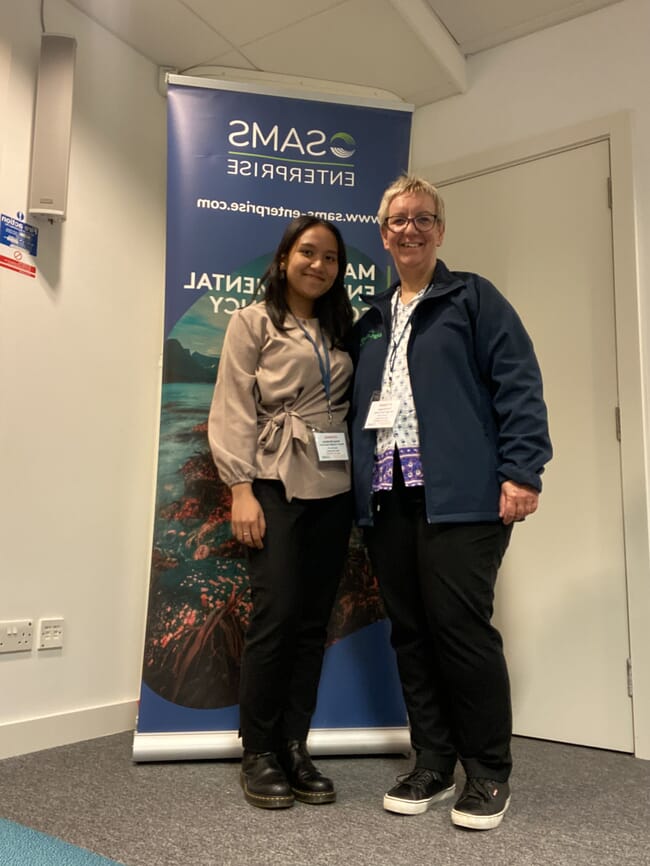
What WiSA offers
The WiSA mentoring programme is more than just one-on-one guidance. It’s a flexible, self-led initiative running from March to December, with 45–90-minute sessions held online or in person. Mentees are responsible for arranging meetings, and mutual respect and confidentiality are core values. Laurie Macpherson, the programme coordinator, remains available to support both mentees and mentors throughout the process.
This year’s programme launched with an online event where mentees could connect, share expectations, and meet mentors through informal breakout sessions. I was impressed by the diversity of participants, from entrepreneurs and hatchery technicians to communication professionals and recent graduates. I’ve connected with a few, and we all feel supported by this programme.
What sets WiSA apart is its strong sense of community and real-world impact. Many former mentees have secured new jobs, published research, or accessed collaborative funding through connections made during the programme. Laurie shared that: “Of the 200+ participants we surveyed, 90 percent said their main reason for joining was to gain networking support.”
Why mentorship matters
Mentorship is vital for women in STEM, especially in aquaculture, where women remain a minority in many technical or operational roles. Traditional social expectations can be a barrier, especially in field-based positions. Having role models is important not just for technical knowledge, but also for building confidence and resilience.
Mentorship also acts as a form of informal leadership development. Mentees learn how to handle conflict, communicate ideas, and balance work with personal responsibilities. In a world where careers aren’t always linear, mentors’ real-life experiences become incredibly valuable.
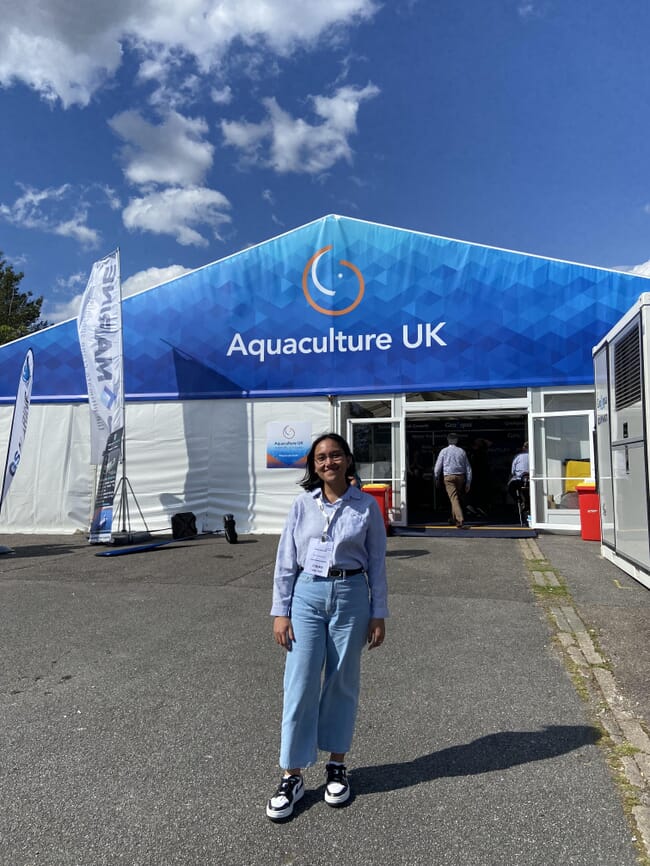
She covered the event for Aqua Indonesia
Could it work in Indonesia?
I see great potential for adopting a WiSA-style mentoring model in my home country. Indonesia is one of the world’s top aquaculture producers, particularly in tilapia, catfish and shrimp farming. Women play critical roles across the entire value chain, from pond management and hatcheries to processing and marketing.
With over 17,000 islands and a population exceeding 280 million – approximately 50 times Scotland’s – Indonesia presents both immense challenges and exciting opportunities for empowering women in aquaculture. According to data from the World Resources Institute (WRI) Indonesia, women make up around 42 percent of the workforce in the fisheries sector. However, their contributions, especially in post-harvest processing and small-scale aquaculture, often go unrecognised in policy and management.
As Farid Dimyati, former editor-in-chief of Aqua Indonesia, explains: “Unlike the motivation behind aquaculture in Scotland, which in developed countries generally emphasises gender equality and focuses on producing skilled professionals, the role of women in Indonesia is still largely tied to supporting household income.” This reflects a broader issue: while women are heavily involved in the value chain, they are rarely seen as key players in the development of the industry.
That’s why I believe the WiSA programme could serve as an inspiring model for Indonesia. We do have government and NGO-led initiatives aimed at supporting women in aquaculture, but these often focus on income generation rather than career development or gender equity. A programme like WiSA, if adapted thoughtfully, could help change that narrative. WiSA offers a model that could help Indonesian women build networks, develop technical expertise, and pursue careers in aquaculture beyond traditional roles. It could also provide them with networks and mentorship opportunities to strengthen their confidence and visibility in the field. The goal would not just be to help women make money, but to ensure they have equal access to opportunities, leadership, and recognition. And that’s a vision worth pursuing, not only for Indonesia, but for many other countries where women in aquaculture are still an untapped force for innovation and sustainability.
WiSA has shown me that real change often begins with simple, personal relationships – a conversation built on trust and support between a mentor and a mentee. With the programme’s support, women can step into leadership roles with greater confidence. For women in Scottish aquaculture who are interested in joining the programme, applications usually open before March.
I hope similar models will emerge and grow in Indonesia, opening more doors for women who are ready to lead, contribute and shape the future of aquaculture.


